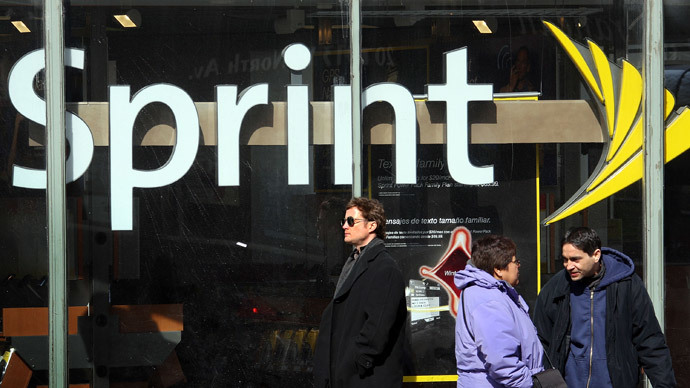Sprint overcharged US govt $21 mn for wiretaps - lawsuit

The US government filed a lawsuit against telecom giant Sprint in civil court on Monday, accusing the company of overcharging the government for costs related to court-ordered wiretapping and surveillance.
Sprint, along with Verizon and AT&T, are regularly required to aid government investigations – doing so by facilitating phone surveillance, also known as pen registers, which contain metadata about a phone call, not its content. In exchange for standing at the ready, the companies are permitted to charge law enforcement agencies for “reasonable expenses” related to the investigation.
In the time between January 1, 2007 and July 31, 2010, government lawyers claim that Sprint inflated the costs by 58 percent.
US Attorney Melinda Haag of the northern district of California said Sprint, the third largest US wireless network provider, pocketed an extra $21 million, arguing that the company “knowingly submitted false claims to federal law enforcement agencies, such as the Federal Bureau of Investigation (FBI), Drug Enforcement Agency (DEA), US Marshals Service (USMS), Bureau of Alcohol, Tobacco and Firearms (ATF), Immigration and Customs Enforcement (ICE), and others, by including unallowable costs in the charges for carrying out court orders authorizing wiretaps, pen registers, and trap devices.”
The suit asserts that Sprint violated the False Claims Act, an anti-fraud law, and broke federal regulations that forbid companies from using government reimbursements to update unrelated equipment or services, according to Reuters.
“Because Sprint’s invoices for intercept charges did not identify the particular expenses for which it sought reimbursement, federal law enforcement agencies were unable to detect that Sprint was requesting reimbursement of these unallowable costs,” the Justice Department claimed.
The Obama administration’s claim that Sprint “knowingly” submitted false claims is an accusation that the company either knew it had falsified records, acted in “deliberate ignorance,” or with “reckless disregard” of the facts.
That point is a key one because, if it’s found to be true, it allows the government to seek treble damages – an award that could cost Sprint $63 million. The company could also be forced to pay punitive damages of between $5,500 and $11,000 for each instance it billed improperly, according to the British Register.
“Under the law, the government is required to reimburse Sprint for its reasonable costs incurred when assisting law enforcement agencies with electronic surveillance,” a company spokesman told Bloomberg on Monday. “The invoices Sprint has submitted to the government fully comply with the law.”
The Justice Department has asked for a jury trial.














